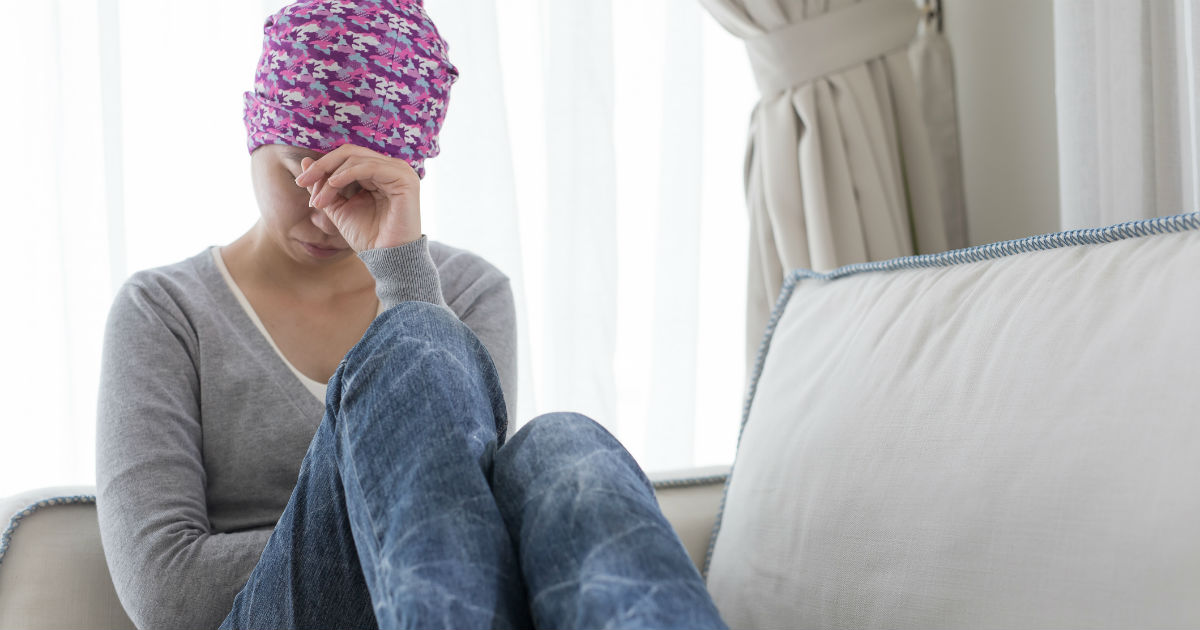
At a time when you’re being urged to take extra steps to protect your health, there is one challenge that may continue to linger: stress. As a cancer patient, you not only face the stresses of life like everyone else, you also deal with specific concerns associated with your diagnosis. And, now COVID-19. Wash your hands. Lock yourself down. Put on a mask.
“This situation adds such enormous stress and often the feeling of helplessness or hopelessness that comes with it, because there are so many dynamics that you have to handle,” says Elaine Smith, a Behavioral Health Therapist at our hospital in Atlanta. But there are things you can do to reduce your anxiety and find joy, even in unsettling times. Smith says it’s important for cancer patients and their caregivers to avoid stressful situations, and she offers a number of tips for taking steps to head off stress or relieve the pressure when it feels overwhelming. But first, it’s important to understand what’s happening to your body when it processes anxiety.
How stress affects the body
When you’re under stress, you produce hormones and other substances that cause your body to react in any number of ways. Your heart rate may increase, your blood pressure may go up, and your breathing may increase. Stress isn’t always a bad thing. It may help prepare you for a challenge or physical activity. Or it may help you to react quickly when facing an emergency—the so-called flight-or-fight response.
But constant stress over a prolonged period of time may harm your health. In an extensive review published in 2017, researchers outlined the many ways stress affects our health. “Many disorders originate from stress, especially if the stress is severe and prolonged,” the authors write. According to their review, stress may be linked to many health issues, including:
- Gastrointestinal problems, loss of appetite
- Cognitive issues, memory loss, depression
- Impaired immune response
- High blood pressure, heart disease
How to cope
It’s important to find healthy strategies to prevent the toll prolonged stress can take. Smith suggests approaching the COVID-19 lockdown as if it’s a new beginning. “Look at setting new goals as we might do on New Year’s Eve,” she says. “I’m going to lose a little weight. I’m going to get some exercise. We have to be able to energize ourselves and look at this as an opportunity.”
For cancer patients, coping strategies may depend on your physical capabilities, including your level of fatigue, a common symptom of cancer. “Fatigue reduces our abilities and slows us down,” Smith says. “But we are always telling our patients that despite the fatigue, it’s important, if you can, to do minimal activities. You don’t have to decide that you want to train for a half-marathon. You have to be aware of your capabilities so you don’t injure yourself.”
Smith also suggests creating a balance between being informed about the COVID-19 outbreak and information overload. “Almost everywhere we go, there is a television on with someone saying something threatening,” she says. “We have to have some balance and boundaries around how well informed we are versus being over-stimulated. We have to be vigilant about how much information we’re taking in and where the information is coming from.”
Other tips to help manage your stress include:
Practice behavioral health techniques. Try relaxation techniques such as deep breathing, meditation or yoga.
Make time for what interests you. Pick up an old hobby. Be creative. Write, play music, paint or draw.
Accept help. Reach out to loved ones or appropriate services for help with cooking, cleaning, shopping, laundry or childcare.
Set priorities. Save your energy for activities that are most important to you.
Eat right. Eat small meals throughout the day and stay hydrated. Avoid sugar, alcohol and caffeine.
Get the rest you need. Get plenty of sleep. Listen to your body and take time to rest.
Confide in others. Share your concerns with your doctor and care team. Reach out to family and friends.
Learn more about how spiritual support may help during the COVID-19 outbreak.



